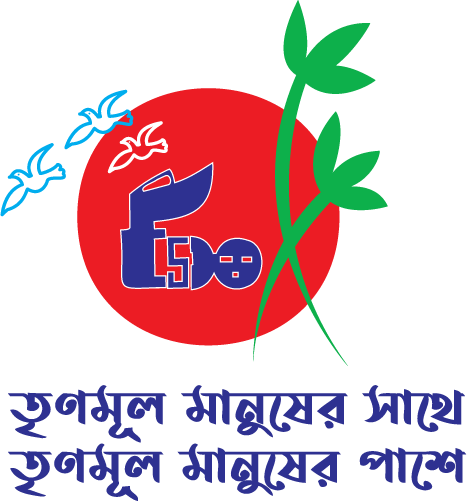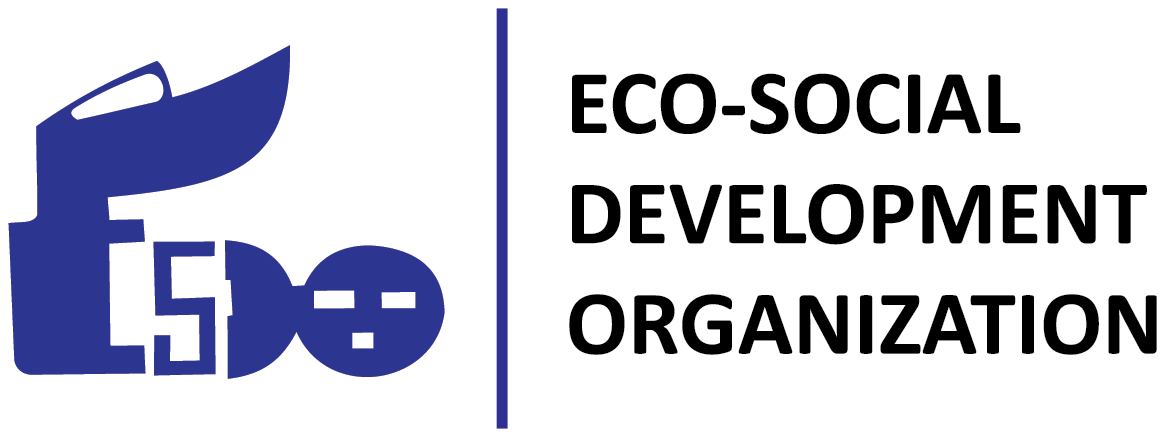The Journey of ESDO: From a Village Response to a National Movement
It all began in 1988, when the people of northwestern Bangladesh were devastated by a catastrophic flood. Amid the destruction, a small group of committed social workers and community leaders came together with one vision: to stand beside the poor, the vulnerable, and the forgotten. This humble initiative was the seed from which the Eco-Social Development Organization (ESDO) was born.
In those early days, ESDO was not a large institution with offices or big projects. It was a movement of compassion—neighbors helping neighbors, volunteers sharing food, shelter, and hope. The focus was simple yet profound: empower the underprivileged and build resilience against disasters.
As years passed, the dream grew. The small initiative gradually turned into a comprehensive development organization. ESDO realized that empowerment meant more than relief—it meant building skills, creating livelihoods, ensuring food and nutrition, and giving women and children the power to claim their rights.
ESDO’s philosophy was clear: development must be community-led and people-centered. Villages became partners, not just beneficiaries. Women found their voices in cooperatives. Children discovered education as a path to dignity. Farmers adopted climate-smart techniques to withstand droughts and floods.
From the dusty lanes of Thakurgaon to the farthest corners of Bangladesh, ESDO kept moving with the tides of change. Microfinance programs gave families the capital to start small businesses. Healthcare and nutrition projects gave mothers and children the chance to live healthier lives. Youth and adolescents discovered hope in training centers and skill-building workshops.
What started as a local response to a flood became a national model of resilience. Today, after more than 37 years of service, ESDO is present in 422 upazilas of 56 districts, reaching over 15 million people.
ESDO’s journey is not just an organizational story—it is the story of millions of lives transformed, of women breaking barriers, of youth shaping futures, and of communities standing tall against poverty, hunger, and climate challenges.
And yet, the spirit remains the same as in 1988: to serve the poor with dignity, to empower the powerless, and to ensure that no one is left behind.
EXECUTIVE SUMMARY: Eco-Social Development Organization (ESDO) continuous its mended for the holistic development of rural populations in the areas of livelihood, skill development, health, education, water and sanitation, nutrition, mother and child health care services, kitchen gardening, growth monitoring, immunizations, arsenic mitigation and the developing needs of marginalized people of Bangladesh from its inception 1988. At the same time, ESDO has been continuing microcredit, social development, food security, disaster management, agricultural development, livestock, fisheries, water resources management, hazardous child labor reduction, counter-trafficking intervention, human rights, adult education, child education, skill development activities for ensuring equitable society free from poverty in ESDOs working area.
ESDO managed the mentioned programs in 4032 Unions, 162 Municipality, 422 Upazila under 56 districts & 7 City Corporation, 8 Division of Bangladesh, directly reaching more than 15 million poor and vulnerable people. Different need-based programs are aimed to enhancing the capabilities of deprived people in terms of social development, disaster facing, food security, agriculture, gender, nutrition, microfinance, health, environment, rights and governance, education and human development, and with empowering them to solve the problems that affect their lives and to cooperate to resisting oppression and exploitation. The undertaking of such self-initiated and autonomous actions is an important achievement in a context where the deprived people are dependent for their livelihood and social security.
For the last 37 years of development journey, ESDO has been serving with untiring efforts to bring forth and optimum development situation in Bangladesh. During this long time, ESDO has been intended to adapt to the changing situation and provide the most time-fitting services especially for the poor and disadvantaged. The comprehensive software & hardware support package has been dedicated to ensuring, skill development activities, social development, food security, disaster management, agricultural development, livestock, fisheries, water resources management, microcredit, hazardous child labor reduction, counter-trafficking intervention, human rights, adult education, child education, health and nutrition, hygienic sanitation and personal hygiene for the grassroots people while focusing on community motivation and empowerment of people. A community-focused and people-centered approach has been adapted by ESDO while considering the national policy and Sustainable Development Goals (SDGs) as its guiding principle.
For the sake of bringing sustainable food security, skill development, livelihood development, ESDO provides demand-driven and bottom-up services, instead of supply-driven and top-down services, ensuring community participation in every step from planning, through decision-making to implementation and monitoring and follow-up as well as cost-sharing by community people. Maintaining this process ESDO has succeeded in creating a sense of ownership of the programs among the community. This approach has contributed greatly to the sustainability of the program's success.
ESDO has made advocacy programs having major components like ethnic minority rights, gender awareness and women rights, social mobilization, legal aid services, hazardous child labor reduction movement, disaster management, social assistance to Adivasi’s and extreme minorities, counter-trafficking, etc. along with various promotional activities.
ESDO regularly conducts three types of planning for project activities. These are (i) Strategic Plan (ii) Business Plan (iii) Yearly Plan.
ESDO facilities monitoring considering it as an essential tool for its program management to measure the effectiveness of ESDO programs both on quantitative and qualitative aspects. The effective facilitation of regular monitoring also enables the ESDO management to take necessary correctively measures on its program interventions at the right time. ESDO’s all project activities are monitored monthly and quarterly basis by the respective project supervisors besides this ESDO has a group of experienced monitor teams under the guidance of team leaders. The monitor team has monitored the project activities quarterly and submits reports to the Executive Director as well as in monthly coordination meetings. According to the monitoring findings, the ESDO management undertook action to improve the planned activities.
For ensuring qualitative and quantities program ESDO’s all project activities periodically and regularly audited by ESDO’s Internal Audit Team. A professional group regularly audited ESDO’s entire project under the direct supervision of the Executive Director. As per audit findings, the concerned sectoral coordinators ensure to meet-up their lacking or shortfall within the required period.
ESDO regularly evaluated ESDO’s programs and projects through the different period. Mid-term evaluation and final evaluation is mandatory for each program.
ESDO has its transparent financial system as well as comply with the donor’s requirement. ESDO maintain both accruals, cash basis accounting, and follow the double-entry accounting system. Keeping accounts both ways manually and by software also.
Weekly, monthly, and quarterly reporting systems are established. ESDO can produce and provide reports to the donor as per their requirements.
ESDO believes that efficient staff is a significant parameter of organizational strength. ESDO consider them as the most valuable resources. 5808 staff have been working with ESDO, among them 2911 are male and 2897 are female and Volunteer Staff: 1996 Male: 529 Female: 1467 of the total staff 125 are working in the central office and the rest 5683 are working under the regional and branch offices.
VISION : We seek an equitable society free from all discriminations.
MISSION : Our mission is to reduce income and human poverty in our working areas through holistic, integrated development programs suited to the specific needs of the poor and marginalized communities. We adopt a dual approach of service delivery and a rights-based framework, with a focus on income generation, enhanced education, nutrition and health, promotion of human rights, and establishment of good governance practices. Gender equity and environmental protection are integrated into each of our programs as priorities across the board. Guided by the core belief in equity, we engage in active promotion of human rights, dignity, and gender equality that empowers people through social, economic, political, and human capacity building. Women and children remain at the heart of all our initiatives. We believe that through continuous improvement of our organizational capabilities, we can have more quality services. First among these, our commitment is to outreach and support to ultra-poor people—a defined main manifesto and leading mission with determination.
ESTABLISHMENT: 3rd April 1988


